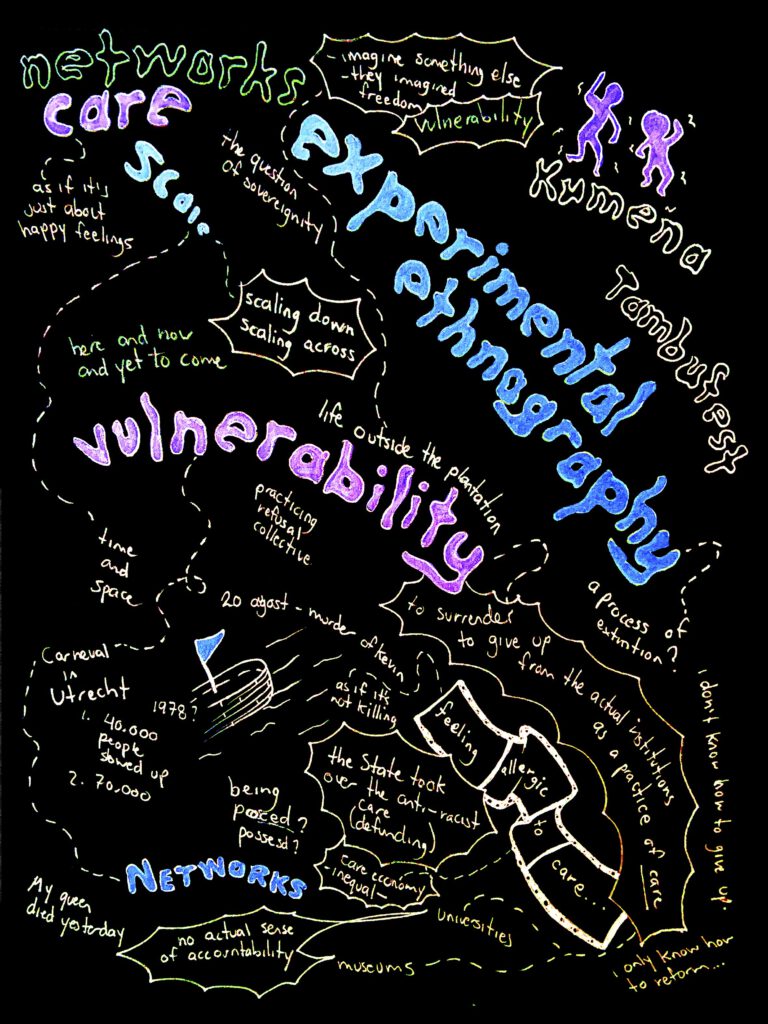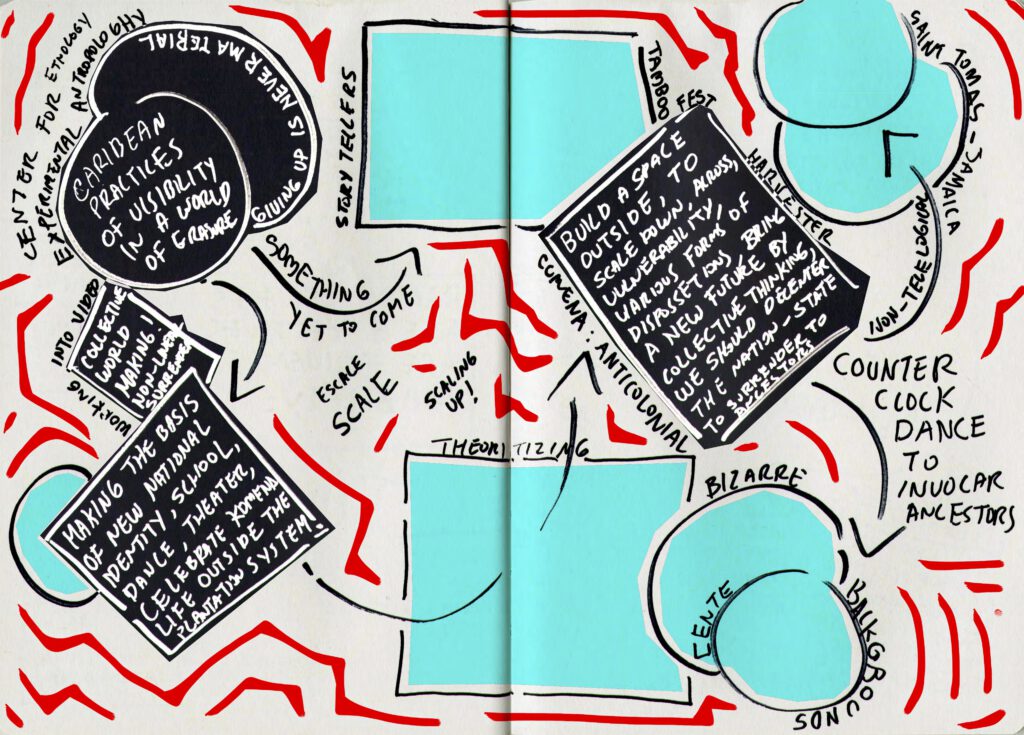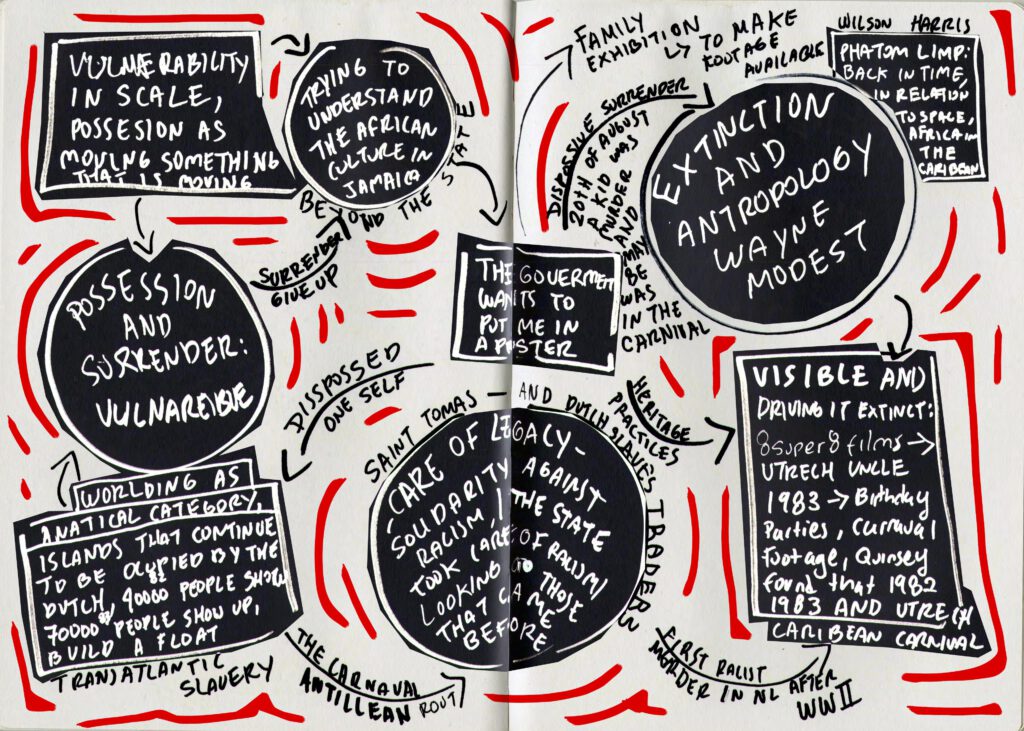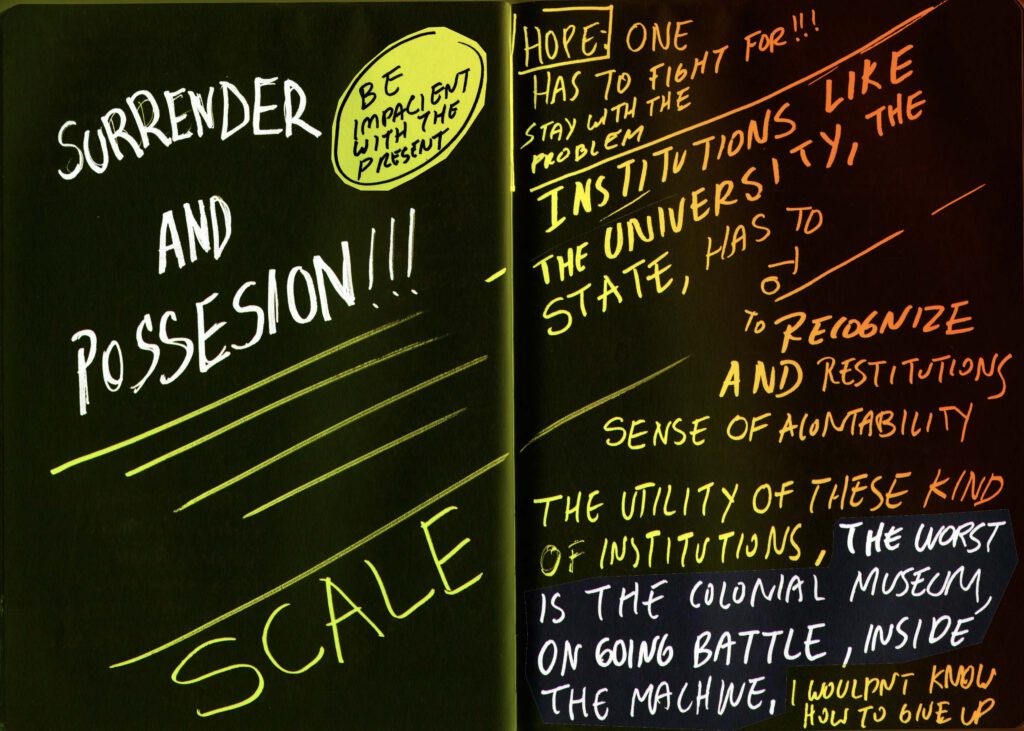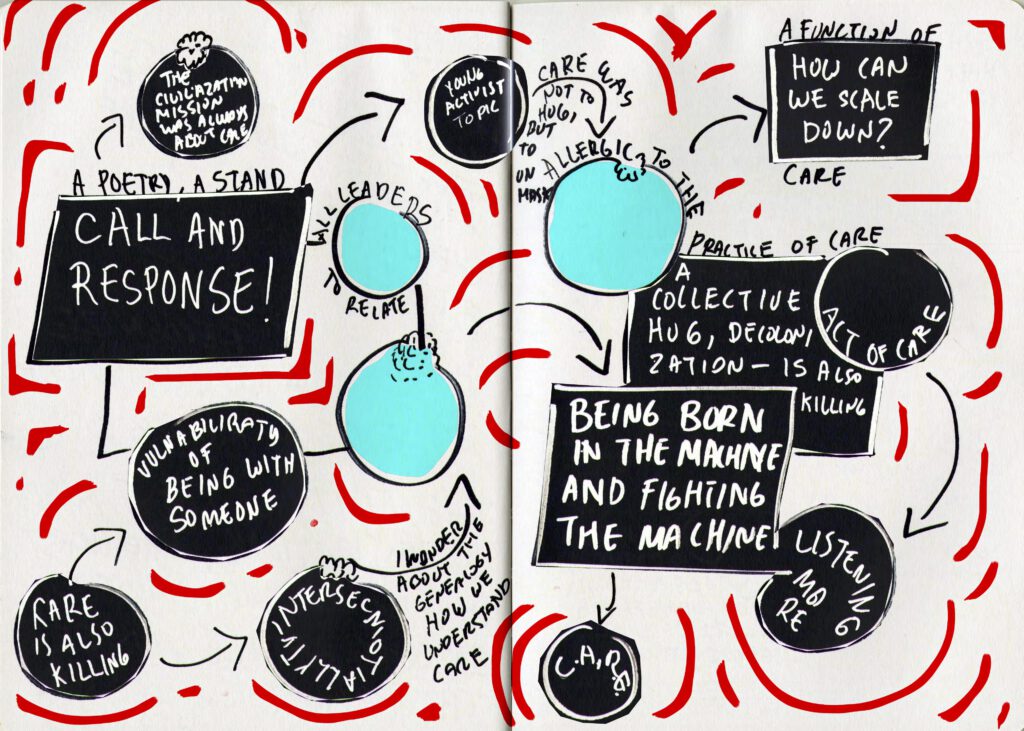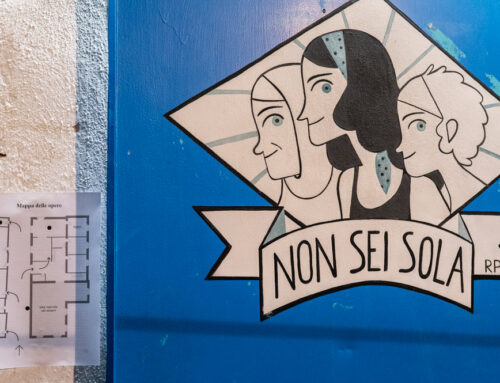Networks of Care
Quinsy Gario, Wayne Modest and Deborah Thomas
Harvest by Daniel Aguilar and Diana Cantarey
Hosted by Aria Spinelli
In the panel Networks of Care, Deborah Thomas, Quinsy Gario, and Wayne Modest discussed different forms of care, focusing on the clash between the care of the state and alternative forms of preservation, focusing on the care for heritage. Thomas recounted the story of the Tambufest, which preserves Kumina, a Jamaican folk dance of African origin. Kumina and the Tambufest present an Afro-Jamaican cultural tradition as embodied archive, showing how the past is not past but also present and future. The Tambufest works in ways quite different from the state’s approach to heritage, which Modest describes as a conscription of these practices by the state through festivalisation, heritagisation, and turistification. Both shed light on the ways in which the state exercises control and sovereignty over heritage by way of caring for it. To this control, they oppose practices inspired by spirituality and ritual that focus instead on surrender and vulnerability.
In their conversation, surrender and possession interplay with the vulnerability of practices heritages. Gario addressed notions of care in relation to communities from the Caribbean islands that share continued Dutch colonisation and occupation living in the Netherlands. When looking at Super 8 footage shot by his uncle, the painter Rudsel Martinus, he stumbled upon the images of the 1983 Antillean carnival in Utrecht, which he did not know about. Through his research, he discovered that the festival was organised by a network of communities across the Netherlands that chose Utrecht as location because of its central position.
Utrecht was incidentally also the city where in 1713, the slave trade was internationally regulated through the Peace Treaty of Utrecht. For the first iteration of the carnival in 1982, about twenty thousand people gathered. Although the number of participants rose to seventy thousand the year after, for the second and last parade in Utrecht, the event was poorly documented and barely remembered. Exactly two weeks after the parade in 1983, an Antillean teenager named Kerwin Lucas was killed by a neonazi, and it sparked anti-racism mobilisation and organisation. Gario speculates that Kerwin would probably have been at the parade and might have been filmed by his uncle. This opens up conversations on the anti-colonial and decolonial function of the parade in the Caribbean and what happens when it’s transposed to the imperial centre.
Both the Tambufest and the Antillean Carnival in Utrecht create spaces outside-of, but in-relation-to state structured care. In this sense, the speakers agreed that the notion of scale is not only a practice of scaling down rather than scaling up but also of scaling across. Modest finds the Afro-Jamaican community and the community of Curacao in the Netherlands build worlds. These networks of care operate within communities but also within expanded notions of time and of spaces, working within the interstices of possession and surrender, unleashing and revaluing vulnerability.
